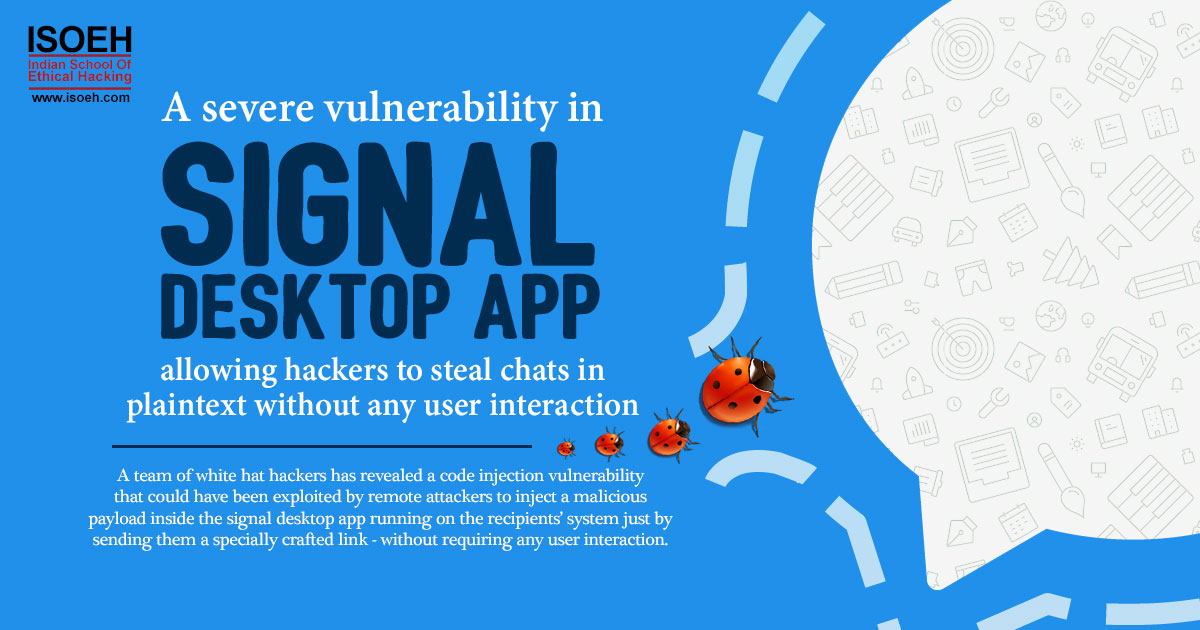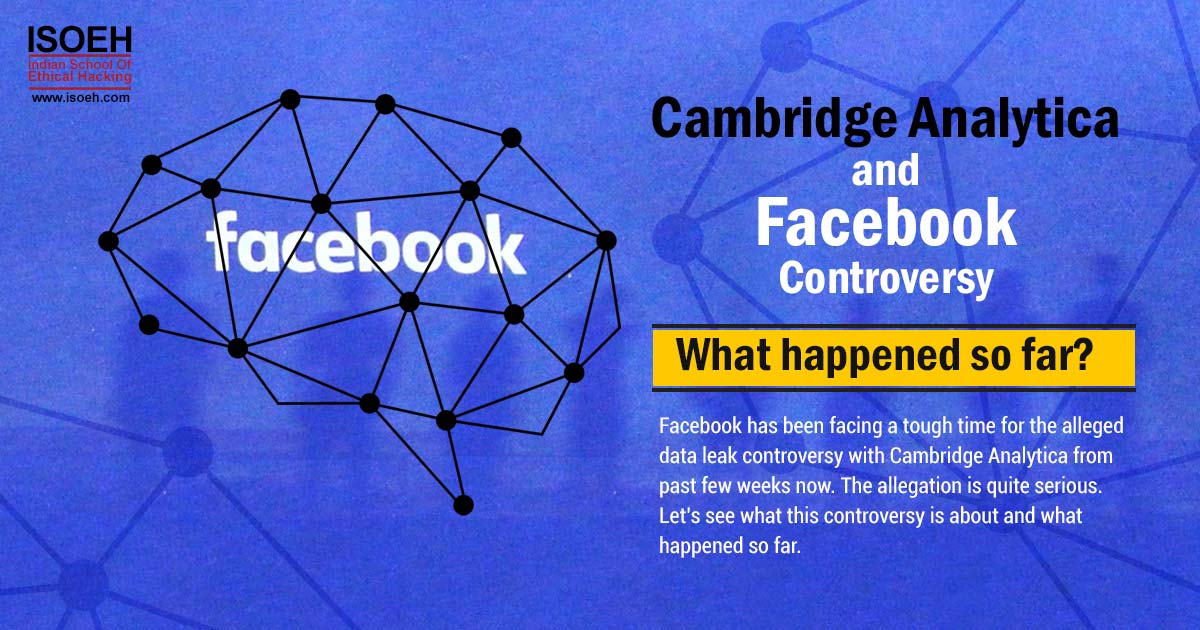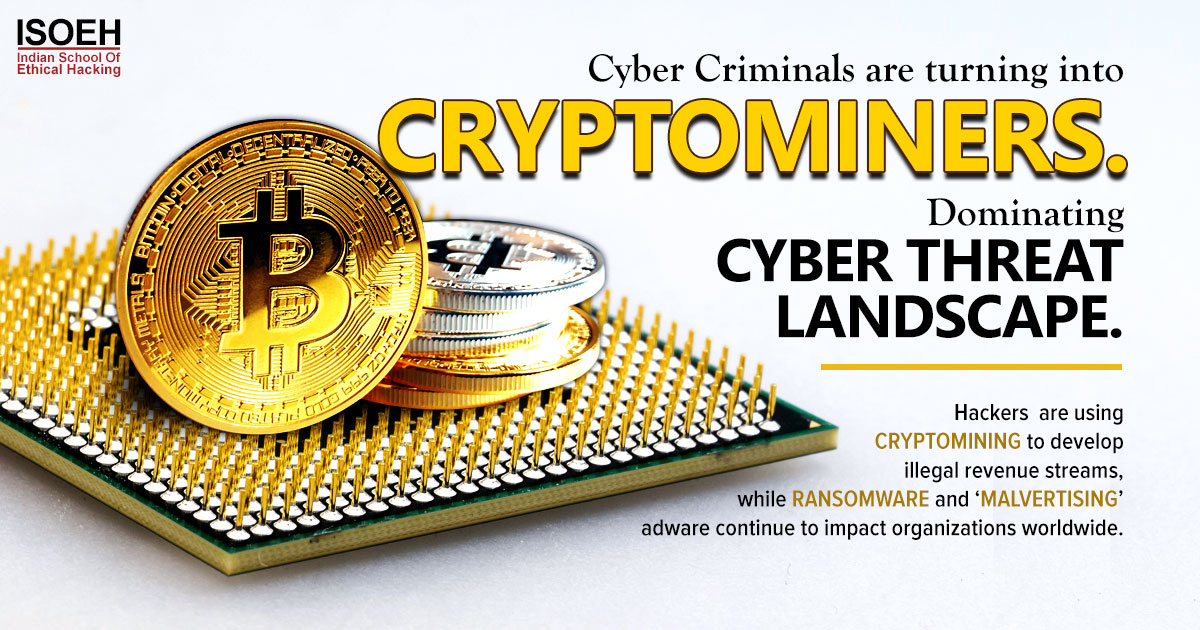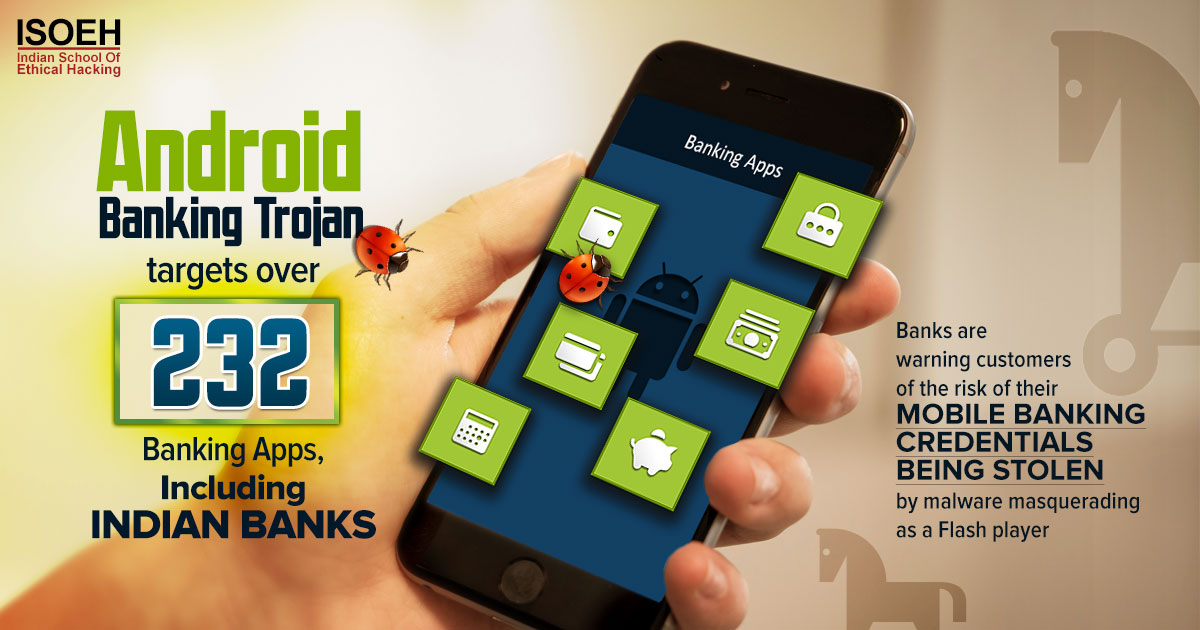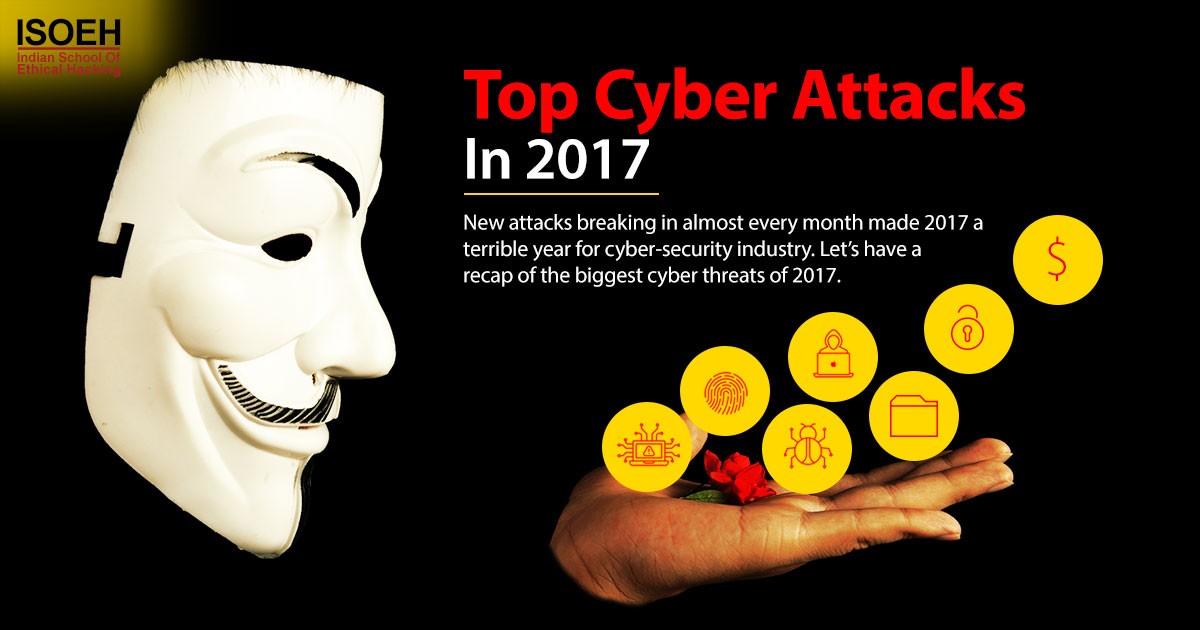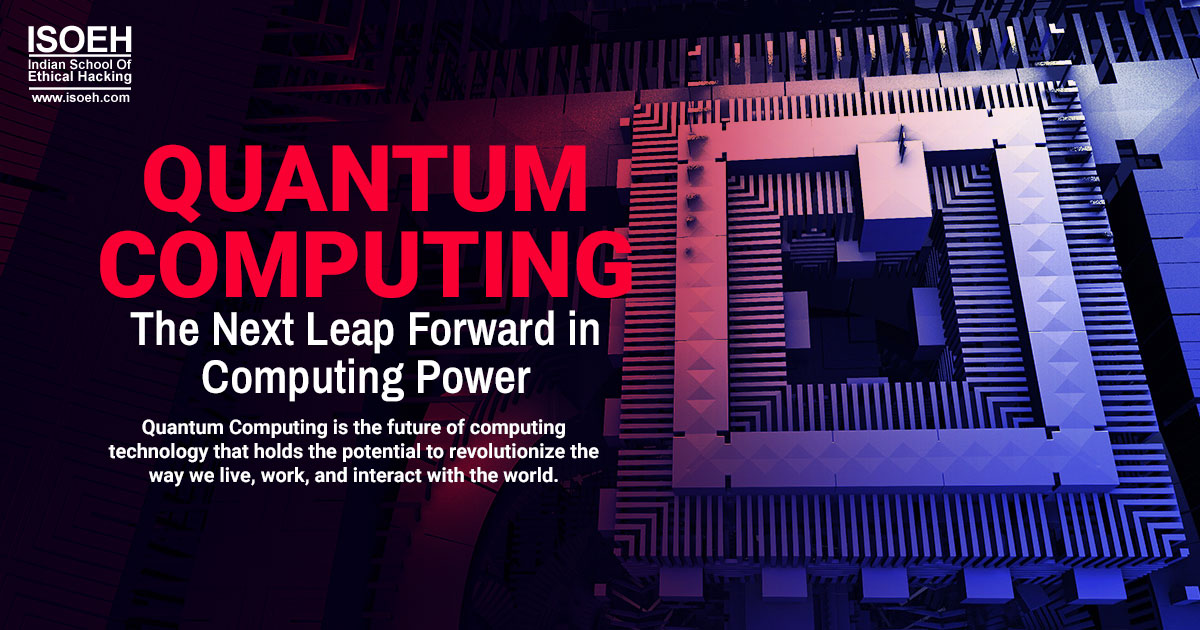
Contents
 "Quantum Physics describes the behaviour of atoms and fundamental particles like electrons and photons. Quantum Computer operates by controlling the behaviour of these particles, but in a way, it is completely different from our regular computers. A quantum computer is not just a more powerful version of our current computers just like a light bulb is not a more powerful candle. YOU CANNOT BUILD A LIGHT BULB BY BUILDING BETTER AND BETTER CANDLES.
"Quantum Physics describes the behaviour of atoms and fundamental particles like electrons and photons. Quantum Computer operates by controlling the behaviour of these particles, but in a way, it is completely different from our regular computers. A quantum computer is not just a more powerful version of our current computers just like a light bulb is not a more powerful candle. YOU CANNOT BUILD A LIGHT BULB BY BUILDING BETTER AND BETTER CANDLES.
A light bulb is a different technology, based on a deeper scientific understanding. Similarly, a quantum computer is a new kind of device based on the science of quantum physics. Just like a light bulb transformed society, quantum computers have the potential to impact so many aspects of our lives including our security needs, our health care, and even the internet."
Let’s have an introduction in a nutshell before reaching its core zone.
Introduction
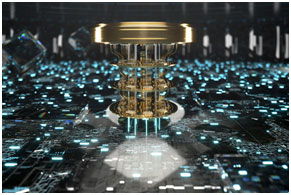 Quantum Computing has been hailed as the next big leap forward in computing power, offering unprecedented speed and processing capabilities that could transform everything. Unlike classical computers, which operate on binary digits, quantum computers work with quantum bits, or qubits, allowing for multiple calculations to be performed simultaneously. This means that quantum computers have the potential to solve problems that would take classical computers millions of years to solve in just a few minutes or even seconds. As research and development continue to progress in this exciting field, the possibilities of what quantum computing could achieve are both fascinating and endless.
Quantum Computing has been hailed as the next big leap forward in computing power, offering unprecedented speed and processing capabilities that could transform everything. Unlike classical computers, which operate on binary digits, quantum computers work with quantum bits, or qubits, allowing for multiple calculations to be performed simultaneously. This means that quantum computers have the potential to solve problems that would take classical computers millions of years to solve in just a few minutes or even seconds. As research and development continue to progress in this exciting field, the possibilities of what quantum computing could achieve are both fascinating and endless.
How does a quantum computer work?
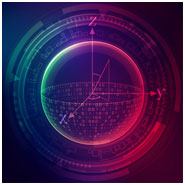 Quantum computers use qubits, which can exist in multiple states at the same time, to perform calculations. The qubits are manipulated using quantum gates, which can perform operations on multiple qubits simultaneously. The final output is obtained through a process called quantum measurement.
Quantum computers use qubits, which can exist in multiple states at the same time, to perform calculations. The qubits are manipulated using quantum gates, which can perform operations on multiple qubits simultaneously. The final output is obtained through a process called quantum measurement.
Top 20 Real-World Use Cases of Quantum Computing 2023
- Drug Discovery: Quantum Computing can accelerate the process of discovering new drugs by simulating complex molecular interactions and predicting drug efficacy.
- Financial Modelling: Quantum Computing can be used to optimize financial portfolios, risk assessment, and pricing models by analyzing vast amounts of data with complex algorithms.
- Supply Chain Optimization: Quantum Computing can help businesses optimize their supply chains by modelling complex supply and demand patterns and identifying inefficiencies.
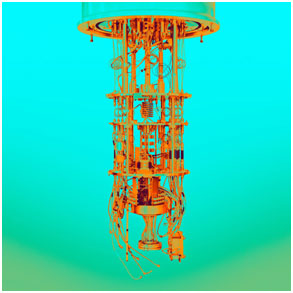 Cryptography: Quantum Computing can be used to develop stronger cryptographic algorithms and break existing ones, making it a crucial tool for both security and cyberattacks.
Cryptography: Quantum Computing can be used to develop stronger cryptographic algorithms and break existing ones, making it a crucial tool for both security and cyberattacks.- Weather Forecasting: Quantum Computing can be used to simulate complex the weather patterns and predict weather with greater accuracy.
- Traffic Optimization: Quantum Computing can be used to optimize traffic flow and reduce congestion on roads, rail networks, and airports.
- Energy optimization: Quantum Computing can be used to optimize energy usage and reduce energy waste by modelling energy grids and predicting demand.
- Aerospace engineering: Quantum Computing can be used to simulate and optimize the design of aircraft, spacecraft, and other complex systems.
- Climate Modelling: Quantum Computing can be used to simulate complex climate models and predict the effects of climate change.
- Logistics Optimization: Quantum Computing can be used to optimize logistics and shipping routes for businesses that ship large volumes of goods.
- Autonomous Vehicles: Quantum Computing can be used to optimize the algorithms and sensors used in autonomous vehicles, improving safety and efficiency.
- Machine Learning: Quantum Computing can be used to develop and optimize machine learning algorithms, improving accuracy and reducing training times.
- Cryptocurrency: Quantum Computing can be used to mine cryptocurrency more efficiently and securely, and to improve the security of cryptocurrency transactions.
- Fraud Detection: Quantum Computing can be used to detect and prevent financial fraud by analyzing large amounts of data and identifying anomalies.
- Predictive Maintenance: Quantum Computing can be used to optimize maintenance schedules for industrial equipment, reducing downtime and improving productivity.
- Medical Diagnosis: Quantum Computing can be used to analyze large amounts of medical data and develop more accurate diagnostic tools.
- Natural Language Processing: Quantum Computing can be used to develop more advanced natural language processing algorithms for tasks such as translation and sentiment analysis.
- Smart Cities: Quantum Computing can be used to optimize the management of urban infrastructure, such as power grids, transportation systems, and waste management.
- Material Design: Quantum Computing can be used to simulate and optimize the properties of materials for use in industries such as electronics, aerospace, and construction.
- Protein folding: Quantum Computing can be used to simulate and optimize the folding of proteins, which can lead to breakthroughs in drug discovery and disease treatment.
How Quantum Computing is different from supercomputers?
| Topic | Quantum Computing | Supercomputers |
|---|---|---|
| Processing Capability | Uses qubits that can exist in multiple states at the same time, allowing for quantum parallelism and exponentially faster processing of certain types of problems. | Uses classical bits that can have a value of either 0 or 1 and perform calculations using a series of logical operations. |
| Architecture | Quantum computing uses a fundamentally different architecture than classical computers, which are based on binary logic. | Supercomputers use a classical computing architecture based on the Von Neumann model, which consists of a processor, memory, and input/output devices. |
| Algorithm Complexity | Quantum computers can handle complex algorithms exponentially faster than supercomputers. | Supercomputers can handle a wide range of algorithms, but they may take longer to solve complex problems. |
| Parallelism | Quantum computing uses quantum parallelism, where a single qubit can represent multiple states at the same time, allowing for massively parallel processing. | Supercomputers use parallel processing, where multiple processors work together to solve a problem. |
| Energy Consumption | Quantum computing can be more energy-efficient for certain types of problems than classical computing, but current quantum computers require extreme cooling to operate. | Supercomputers require a large amount of energy to operate and generate a lot of heat, requiring significant cooling systems. |
| Applications | Quantum computing is well-suited for certain types of problems such as optimization, simulation, and cryptography. | Supercomputers are better suited for more general-purpose computing tasks, such as scientific simulations, data analytics, and weather forecasting. |
Top 5 Challenges in 2023 In Building a Quantum Computer
- Maintaining The Coherence of The Qubits: Qubits are extremely sensitive to their environment and can quickly lose their quantum states due to interference from other particles and interactions with their surroundings.
- Scaling Up The Number of Qubits: The more qubits a quantum computer has, the more powerful it is. However, as the number of qubits increases, it becomes increasingly difficult to maintain the coherence of the system and control the interactions between the qubits.
- Dealing with Errors and Noise: Quantum computers are prone to errors and noise due to their sensitivity to their environment, which can lead to incorrect calculations. Developing error-correction techniques and reducing noise in the system is a major challenge.
- Developing New Quantum Algorithms: Classical algorithms cannot be directly ported to quantum computers, and new quantum algorithms need to be developed to take advantage of the unique capabilities of quantum computing.
- Ensuring Security: Quantum computing has the potential to break many encryption schemes currently in use, making it important to develop new quantum-resistant encryption methods to ensure the security of sensitive data.
How You Can Learn More About Quantum Computing?
 If you're interested in learning more about Quantum Computing, there are many resources available to you. Online courses, books, research papers, and academic programs can all help you dive deeper into this fascinating field. Some popular resources include IBM Quantum Experience, Microsoft Quantum Development Kit, and Qiskit. Have you started exploring today and released the secrets of quantum mechanics?
If you're interested in learning more about Quantum Computing, there are many resources available to you. Online courses, books, research papers, and academic programs can all help you dive deeper into this fascinating field. Some popular resources include IBM Quantum Experience, Microsoft Quantum Development Kit, and Qiskit. Have you started exploring today and released the secrets of quantum mechanics?
Conclusion
Quantum Computing is the future of computing technology that holds the potential to revolutionize the way we live, work, and interact with the world. With their immense processing power, Quantum Computers can solve complex problems that would take classical computers millions of years to solve, unlocking new possibilities in fields such as cryptography, drug discovery, and climate modelling.
As technology continues to mature, we can expect to see more breakthroughs that will change the way we think about computing. If you want to stay ahead of the curve and be a part of this exciting new era, now is the time to dive into the mind-bending world of Quantum Computing!
Hacking Tools
Explore All Hacking Tools »
UFTP is an encrypted multicast file transfer program for secure, reliable & efficient transfer of files. It also helps in data distribution over a satellite link.
Read DetailsBreaking News
Breaking News Of Each Month »
The recent pandemic was unexpected and unknown to most part of the world. It has changed our life and we are slowly adapting to our new lifestyle. The risks associated with the new lifestyle, both personal & corporate, are unknown to most of us.
Read Details









